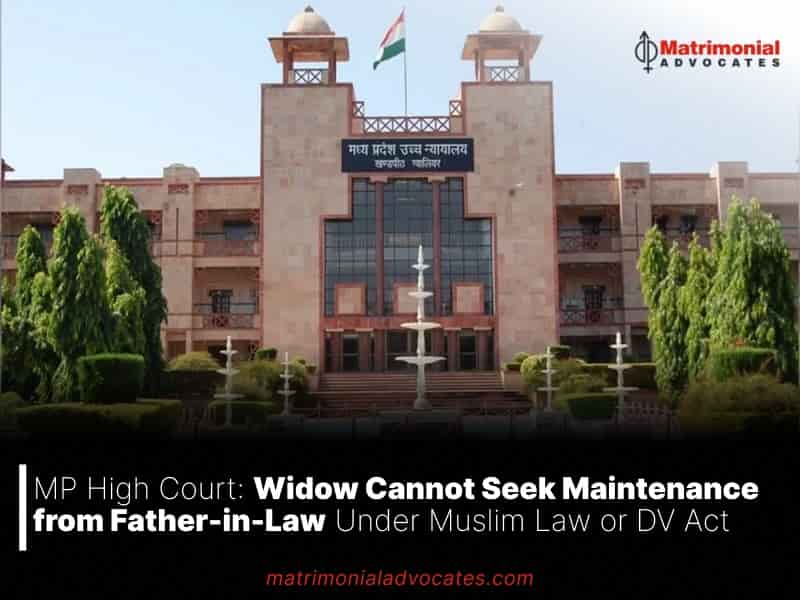
The Court noted that the father-in-law cannot be compelled to pay maintenance to his widowed daughter-in-law either under the Domestic Violence Act or under Muslim personal law.
The Madhya Pradesh High Court recently held that a father-in-law is not obligated to provide maintenance to his widowed daughter-in-law under the Protection of Women from Domestic Violence Act, 2005, or Muslim personal law [Bashir Khan v. Ishrat Bano].
Justice Hirdesh passed this judgment while allowing an appeal from a man challenging a trial court’s order that had mandated him to pay ₹3,000 per month in maintenance to his widowed daughter-in-law.
“As per the provisions of Muslim law and the DV Act, in the considered opinion of this Court, the present petitioner being father-in law of respondent, cannot be compelled to give maintenance to the respondent,” the Court said in the October 24 ruling.
To provide some context, the petitioner’s daughter-in-law married his son in 2011. After the son’s death in 2015, his widow (the petitioner’s daughter-in-law) was left behind.
Following her husband’s passing, the widow filed a domestic violence case against her in-laws and requested ₹40,000 per month in maintenance to support her daily needs.
The petitioner, her father-in-law, opposed this claim. Despite this, the trial court ruled that he must pay ₹3,000 per month to his widowed daughter-in-law.
The father-in-law subsequently appealed the trial court’s decision to the sessions court. After the sessions court dismissed his appeal, the petitioner filed a revision petition with the High Court, challenging the validity of the maintenance order.
The petitioner’s counsel argued that, as an elderly man and a member of the Muslim community, the petitioner was not required to provide maintenance to his widowed daughter-in-law under Muslim personal law (Mohammedan Law).
The Court was informed that there was no such obligation under the Domestic Violence Act either. To support this claim, the petitioner’s counsel cited several other High Court rulings, including the Calcutta High Court’s decision in Shabnam Parveen v. State of West Bengal & Others.
The petitioner’s counsel also highlighted that the daughter-in-law had been living separately even during the petitioner’s son’s lifetime. In light of these facts, the petitioner argued that he was not required to provide maintenance to his widowed daughter-in-law.
The High Court agreed with these arguments, noting that the trial court had erred in ordering the petitioner to pay maintenance. As a result, the petition was upheld, and the maintenance order was overturned.





